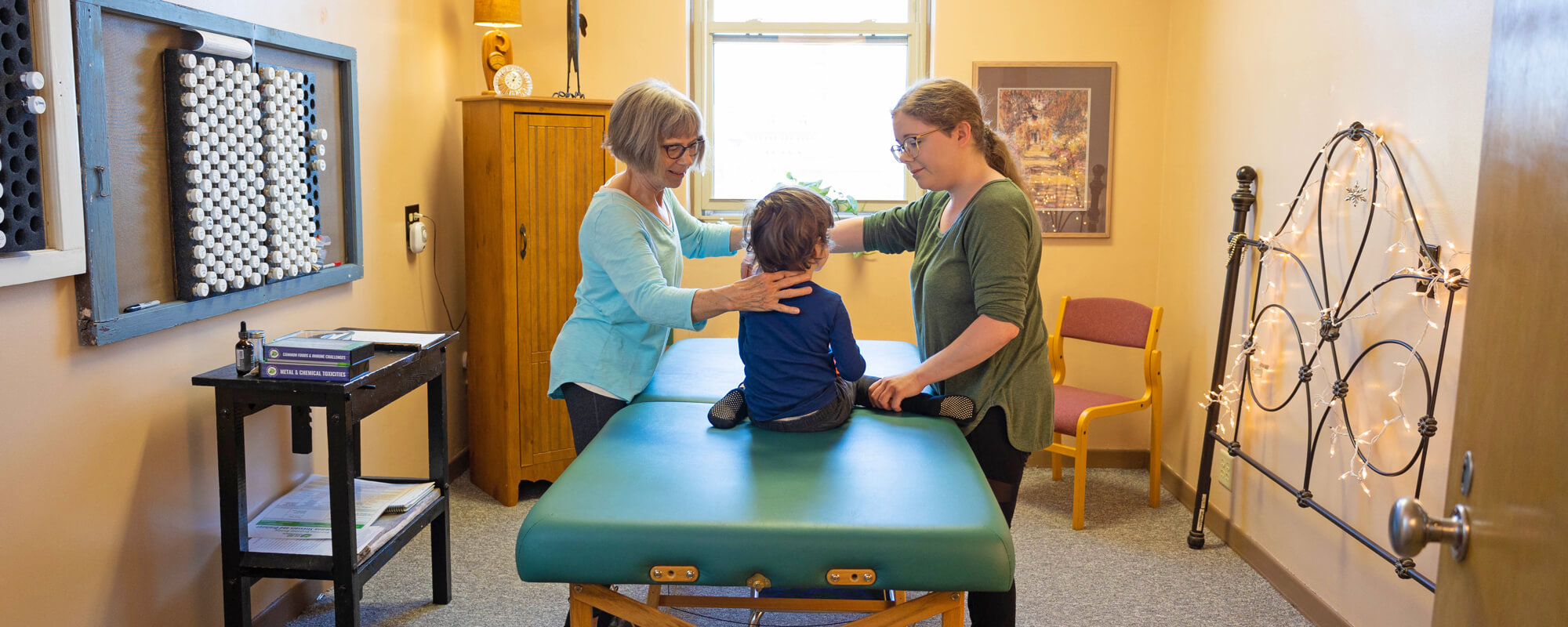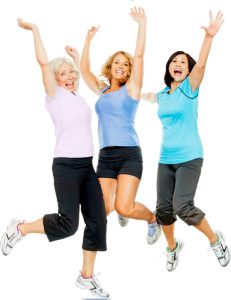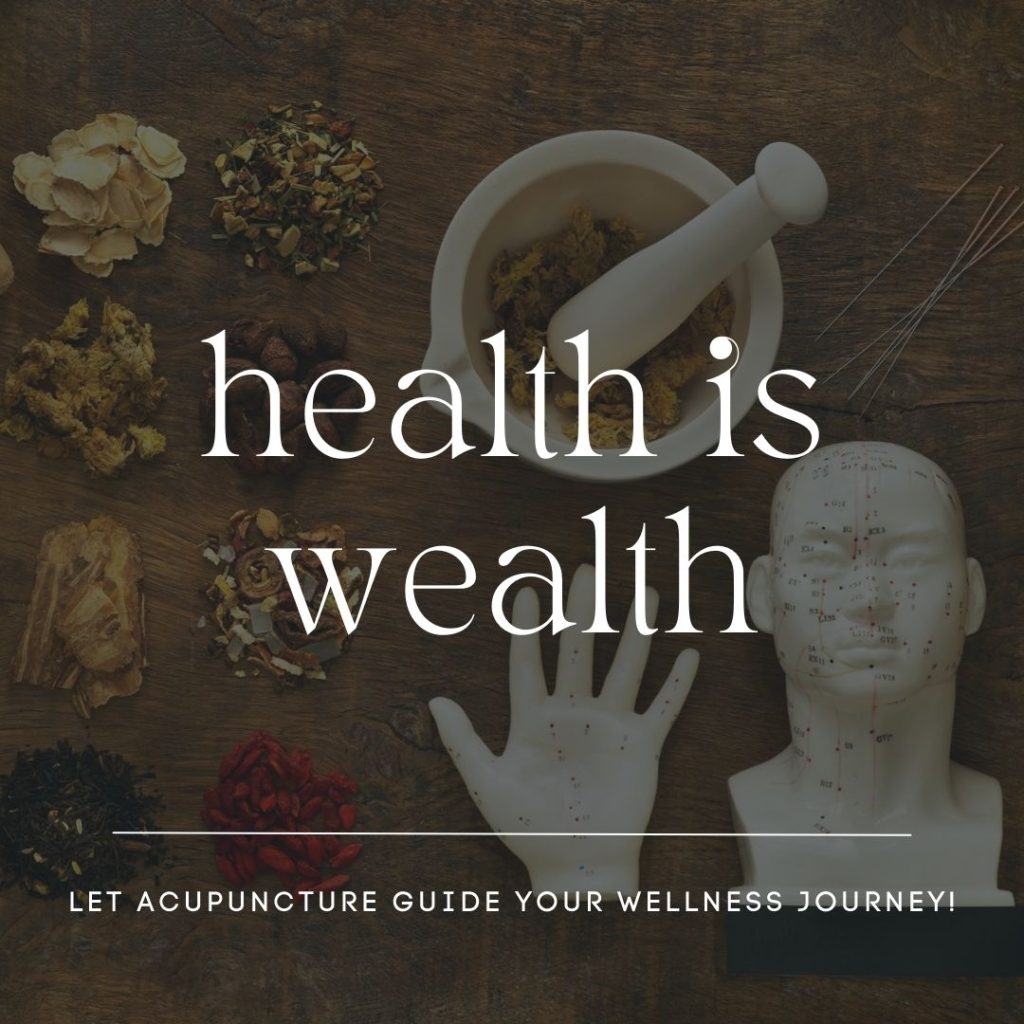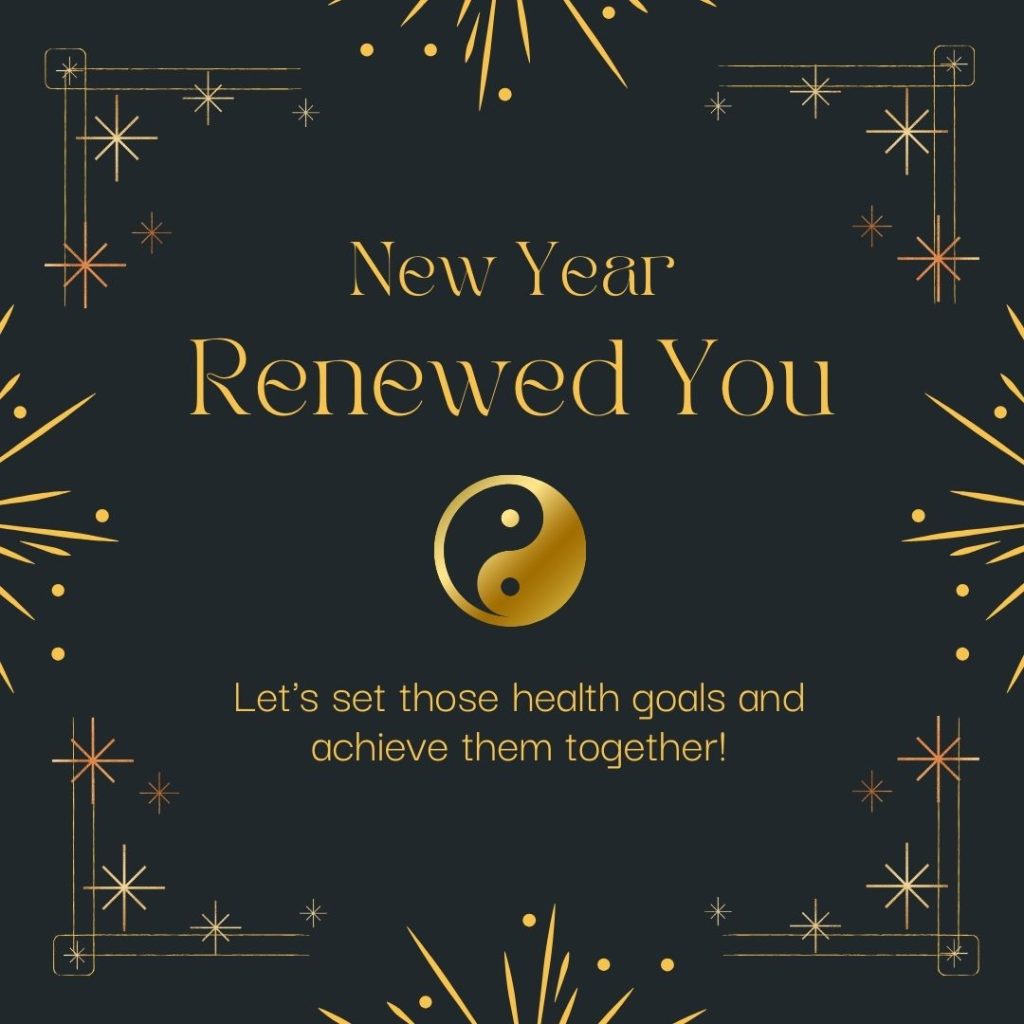- WE MOVED !!!
-
 Professional Acupuncture & Physical Therapy1118 East Superior Street
Professional Acupuncture & Physical Therapy1118 East Superior Street
Duluth, MN 55802(218) 724-3400 Clinic Hours
Mon8:00 am - 4:30 pmTue1:45 pm - 4:30 pmWed8:00 am - 4:30 pmThu8:00 am - 4:30 pmFriCLOSED

- Long Covid Booklet
Traditional Chinese Medicine
New Year New You
Did You Set Your Health Resolutions Yet?
Set your health goals for the new year! It’s never too late to prioritize wellness.
After all, health is wealth. Invest in your health, and reap the rewards of a vibrant life.
Call Heidi today at (218) 724-3400 to schedule your first visit.
How to Boost Winter Energy with Traditional Chinese Medicine
 The season of winter is a time of slowing down and hibernation. According to Traditional Chinese Medical theory, the winter months are the perfect time to recharge your batteries and to start storing up the body’s vital energy reserves. The ancient Chinese believed humans should be at peace and in harmony with nature and follow the natural cycles of the seasons, while taking cues from the surrounding environment.
The season of winter is a time of slowing down and hibernation. According to Traditional Chinese Medical theory, the winter months are the perfect time to recharge your batteries and to start storing up the body’s vital energy reserves. The ancient Chinese believed humans should be at peace and in harmony with nature and follow the natural cycles of the seasons, while taking cues from the surrounding environment.
Winter is dominated by the water element in TCM theory. The water element is associated with the kidneys, bladder and adrenal glands. The kidneys are considered the source of all energy or Qi (pronounced “chee”) found within the body. They store the reserves of Qi in the body for usage during times of stress and change. This Qi also helps in healing, preventing illness and graceful aging. Fundamentally, during the winter months, our bodies are following the cues of nature, which include rest, reflection, storage and conservation.
During the winter months it is important to nourish the kidney qi, as this is also the time when this energy is most easily depleted. Some things that can help nourish the kidney qi include regular acupuncture treatments, moxibustion, proper diet, increased sleep and light exercise.
TCM utilizes numerous modalities and tools to help keep the body balanced and prepped for the seasonal changes. Acupuncture and moxibustion are two of the tools that are regularly used to boost the kidney qi. Moxibustion is a practice where dried mugwort is burned very near the skin to warm and boost the Qi within the body. There are certain acupuncture points that are essential for boosting kidney qi. Most are located either on the lower abdomen, below the umbilicus or on the lower back above the hip bones, in the areas of the kidneys. Applying moxibustion to these areas is a wonderful way to boost the kidney’s energy reserves.
Acupuncture can do essentially the same thing as moxibustion, but on a deeper level and it can physically affect the hormone levels of the adrenal glands, which sit just on top of the kidneys. When the adrenals are supported, they allow for balanced hormones throughout the body. This then helps the body use hormones properly without over-expenditure, thus preventing depletion of the body’s energy reserves.
As the kidneys are closely associated and ruled by the water element, which is the element associated with winter, it is important to remember that water is essential. Drinking room temperature water is a vital step to keeping the kidney qi sufficient throughout the winter months. Eating darkly colored foods like blueberries, blackberries and black beans are also recommended during the winter months, as they boost the kidney qi. Warming foods like hearty soups, whole grains and roasted nuts also keep the body warm and nourished
Keeping the body warm, getting ample amounts of restful sleep and going to sleep early are all recommended during the winter months. Doing all of these things, getting regular acupuncture treatments and eating according to the season, will keep everybody healthy throughout the winter and when spring hits, energy reserves will be ample to take the body into the warmer months ahead.
S.M.A.R.T Goals
Every New Year we lay out a numerous amount of positive goals we hope to achieve. With the New Year comes new responsibilities, changes and a chance to start fresh. New Year’s resolutions are a big part of most individual’s first week in January, but people begin to lose track of the goals they set as the month drags on. Work, school, family and other obligations can fill up your schedule, and you may find yourself forgetting about those New Year’s resolutions you made just a few weeks ago. But, with the SMART goal method you can make sure you achieve your New Year’s resolutions. The SMART method creates a full-proof plan to keep you on task and to make sure those resolutions become reality.
Specific
The “S” in the SMART method stands for specific. This is a very important first step to achieving your resolutions. You need to nail down the specifics of what you are striving to achieve. What do you want to accomplish? Who do you need to help you in order to accomplish it? When will you accomplish your goal? How will you accomplish your goal? Where will you accomplish your goal? All of these questions should be answered in order to have a clear understanding of your goal.
Measurable
Establish a way to track your progress. It is very key to make your goal measurable. Create a certain criteria that is quantifiable. For example, if your resolution is to eat less fast food in the new year, make sure to save your receipts and track how many times you go to fast food locations.
Achievable
This step in the SMART method is critical. It can also be the hardest part of the method. You have to understand how attainable your goals are. Make your goals realistic. If you have created some New Year’s resolutions that seem a little far-fetched you have to stop them before you begin. Only pursue goals that are attainable.
Realistic
To achieve anything you have to truly believe that you want it. Make your goals realistic to your opinions, beliefs and interests. If it really isn’t important to you, you will not strive to make it a reality.
Timely
Create a sense of urgency. By creating a sense of urgency you allow yourself to see the real progress you are making. Instead of claiming you will lose 25 pounds in the New Year, say you will lose five pounds a month for the next five months. This way not only do you create a sense of urgency built around your time-based goal, but in turn you are creating a metric that is measureable, when knowing how many pounds you lost a month. Did you meet your goal?
Healthy Eating for Winter

Winter, in most places, is a time of colder, shorter days. So naturally, when there is less reason to be outdoors, the body tends to want to stay inside where it is warmer. The body’s metabolic rate will be slower, which means eating foods full of sugars can become detrimental over time. When the metabolic rate slows, the body naturally holds onto fat and we gain weight. Just as most animals hibernate throughout the colder winter months, so too should human beings take the information being given and use it accordingly.
According to Traditional Chinese Medicine, winter is a time of preservation and building up strength for the spring. Winter is a time when the kidneys are highly active. They have functions that help the body preserve energy. Foods loaded with salt can actually burden the kidneys and cause them to work overtime. This can lead to kidney disease or kidney failure when done for many years.
Tonics are what should be primarily eaten during the winter months according to TCM. Most tonics include warming herbs, fatty foods and meats. The human body is designed to absorb these rich foods especially well at this time of year. By tuning into nature, humans can be guided toward the proper nutrients. Since fruits are not usually abundant during the winter months, it makes sense we should not be eating large quantities of them. Foods such as fruits, salads and raw foods can deplete the immune system because it will have to work overtime to warm the body. If a person has a dislike of cold weather, joint aches and pains, sore low back or catches cold frequently, then there is too much of an imbalance and that person may be consuming too many cold foods.
 It is recommended to eat warming foods during the winter months. Foods that will strengthen the kidneys, blood and Qi (pronounced “chee”), which is sometimes considered our inner form of energy. Foods that would be best include beef, lamb, root vegetables, dark leafy greens, black beans, oats, quinoa, pumpkin, kidney beans and walnuts. Fruits can be warmed by adding spices like cinnamon, so they don’t tax the system too much. Herbs such as ginseng, garlic, onion, ginger, parsley and basil all have warming properties too that can be used when cooking.
It is recommended to eat warming foods during the winter months. Foods that will strengthen the kidneys, blood and Qi (pronounced “chee”), which is sometimes considered our inner form of energy. Foods that would be best include beef, lamb, root vegetables, dark leafy greens, black beans, oats, quinoa, pumpkin, kidney beans and walnuts. Fruits can be warmed by adding spices like cinnamon, so they don’t tax the system too much. Herbs such as ginseng, garlic, onion, ginger, parsley and basil all have warming properties too that can be used when cooking.
Soups and stews are particularly good to eat at this time of year. Those that utilize bone broth as a base can be very tonifying. These types of foods help warm the body’s core and keep us fully nourished. Cooking should be for longer periods over low heat using less water. This will infuse the food with heat and lasting nourishment.
TCM nutritional therapy is a very important component of the medical system. The food consumed can have profound effects on the body that affect our health and well-being. Along with paying close attention to the foods that are abundant during the seasons, it is also recommended that locally grown foods be utilized. This may help decrease the possibility of allergic reactions.
To find out more about how Traditional Chinese Medicine can help you, contact Heidi at (218) 724-3400. She will be able to guide you along your wellness journey.
Acupuncture Points Parents Can Use to Help Kids

Here are some acupressure points that can be used at home to help your kids with all kinds of problems.
Large Intestine 4 (LI 4) Found along the large intestine energetic pathway, located between the webbing of the index finger and the thumb, on the mound of flesh created when the two fingers are held together. This point improves intestinal function and helps relieve constipation, diarrhea and abdominal pain.
Stomach 25 (ST 25) Located two thumb-breadths away from the belly button on both the left and right sides. Stomach 25 is very useful for relieving diarrhea, constipation and other digestive/abdominal issues. This is another great pressure point to help your kids deal with that upset stomach.
Stomach 36 (ST36) Located on the lateral side of the lower leg, about four finger-breadths from the lower border of the patella or kneecap. This point is considered an overall energy and immune-boosting point. It can help with digestive issues, such as diarrhea, which are sometimes associated with a cold or flu.
Yin Tang Located directly between the inner ends of the eyebrows. This point is wonderful for relieving sinus pressure, curing watery eyes and decreasing stress, which may allow for better sleep. Many acupuncturists use the point in all their patients because of its calming effect. So if you have a little one that can’t sleep, massaging this point can be very helpful.
Du 20 (D20) Located on the top of the head, midway between the apexes of your ears. This point is known as governing vessel 20 (GV 20). It is one of the most powerful points in the acupuncturists’ arsenal. It raises emotional energy, which in turn can help alleviate depression. Applying pressure or lightly tapping this point is a great way to counter depression on your own and it can be done pretty much anywhere. Depression is becoming more prevalent with children because of the lack of personal interaction and bullying.

Parents can massage these points or apply light pressure and help their kids in so many ways. Give these points a try the next time your kids are experiencing illness or emotional issues. Not only is it a great way to help them heal, but it also increases bonding with your kids, which is something every child needs.
Traditional Chinese Medicine – MENOPAUSE: The Second Spring

In horticulture, “second spring” is a term used for that time in early autumn, after the hot and dry end of summer, when a little moisture returns, temps cool and there is a second blooming. Autumn is harvest time, but it’s also a time to rework the garden beds for some fall crops, a second helping at nature’s table.
In a woman’s life, if spring represents our birth and early years, summer our fertile years, then autumn is a transitional time of pre-menopause/menopause, while winter is the winding down years and death. Menopause as the autumn, and therefore ‘second spring’ of our lives comes in our developmental life cycles around the ages of 49-55. This is based on the Chinese medical understanding of women’s development unfolding in 7 year cycles (vs. men’s 8 year cycles). This transitional time leading to menopause ususally begins around the 7th of these 7-yr cycles, but can come earlier or later.
In TCM, Autumn is a time of letting go, the leaves fall and nature reorganizes it’s energetic investments. In a woman’s body during this autumnal life change, there are energy shifts from the reproductive organs, where the body had for many years focused on fertility functions, to the heart where the ‘shen’ or conscious spirit resides.
“Women’s heavenly dew wanes, qi that dwelt in the baby’s palace, moves up to the heart, and her wisdom is deepened.”- Nei Jing (2600 BC)
It is thought that your emotional center (the heart) gets its qi back and a woman’s personal and spiritual life can take center stage. This creates fertile ground for the ‘second spring’ of personal insights and new ideas. The fruit of life’s experience is ripe enough to enjoy as the earned wisdom and understanding that comes with age.
And while aging is feared, even at times demonized, in modern western cultures, it is understood as a natural life process and an accomplishment worthy of respect in most asian cultures. The elderly are revered for their knowledge and maturity. This difference in perception deeply affects the experience of menopausal women. The negative stigma placed on aging in the U.S., especially for women, creates an extra mental and emotional burden.
 Many women, especially in Asian cultures, do not experience the symptoms associated with menopause, such as hot flashes, mood swings and fatigue. Some women even experience more energy at menopause. This is because menopause is actually a homeostatic mechanism that slows down the aging process in women. It is designed to conserve energy and blood, as the body can stop expending it on the menstrual cycle and reproduction. It is in this sense that we can think of it as a healthy transition, one just in time to slow down, then stop our reproductive function to conserve our essence and energy to allow us to get the most out of the final season of our lives.
Many women, especially in Asian cultures, do not experience the symptoms associated with menopause, such as hot flashes, mood swings and fatigue. Some women even experience more energy at menopause. This is because menopause is actually a homeostatic mechanism that slows down the aging process in women. It is designed to conserve energy and blood, as the body can stop expending it on the menstrual cycle and reproduction. It is in this sense that we can think of it as a healthy transition, one just in time to slow down, then stop our reproductive function to conserve our essence and energy to allow us to get the most out of the final season of our lives.
So, why do some women suffer through while others welcome this transition? It’s a matter of balance, as always, in Chinese Medicine. There needs to be an adjustment period where the body can re-stabilize while certain energetic (and hormonal) changes occur. Some people are more flexible and better equipped to handle the fluctuations. They can therefore easily re-center their own yin-yang balance in the body. Many factors affect this ability such as constitution (genetics), lifestyle, diet, environmental exposures, and even cultural influences. Acupuncture and herbs can greatly assist this process too, as they can help to guide the body’s energy back into a state of balance.
It is time to reframe our understanding of menopause as a time to celebrate the gifts that come with the closure of women’s reproductive years. Women can honor this time with rest, reflection, and a re-assessment of direction, relationships, career etc. and be rewarded with a second spring, a time of renewed energy and purpose.
Regular acupuncture can help with all kinds of life transitions, including menopause, and help you cash in on the benefits of those important shifts! Get in ASAP to set up an appropriate treatment plan. We are conveniently located in Downtown Duluth.




